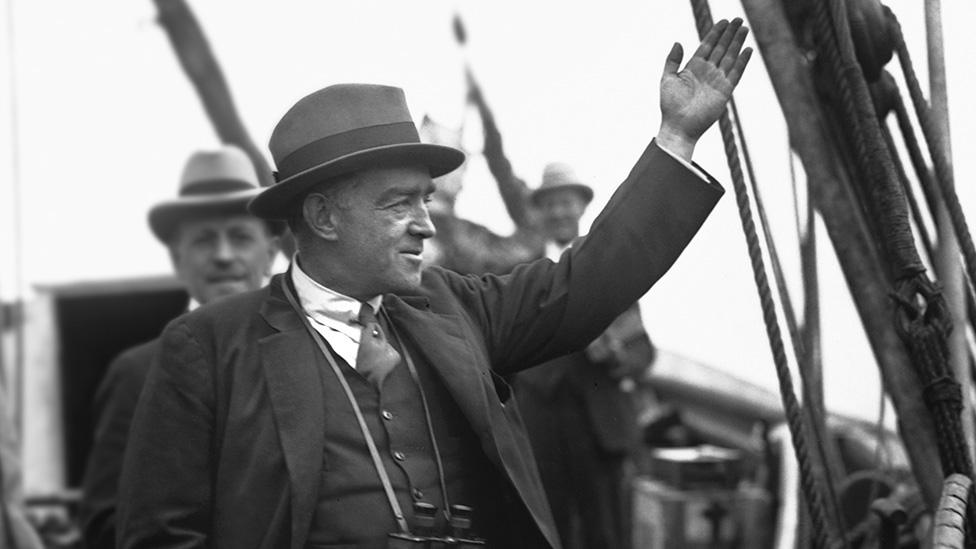Plaque marks 100 years since Shackleton's final expedition
- Published
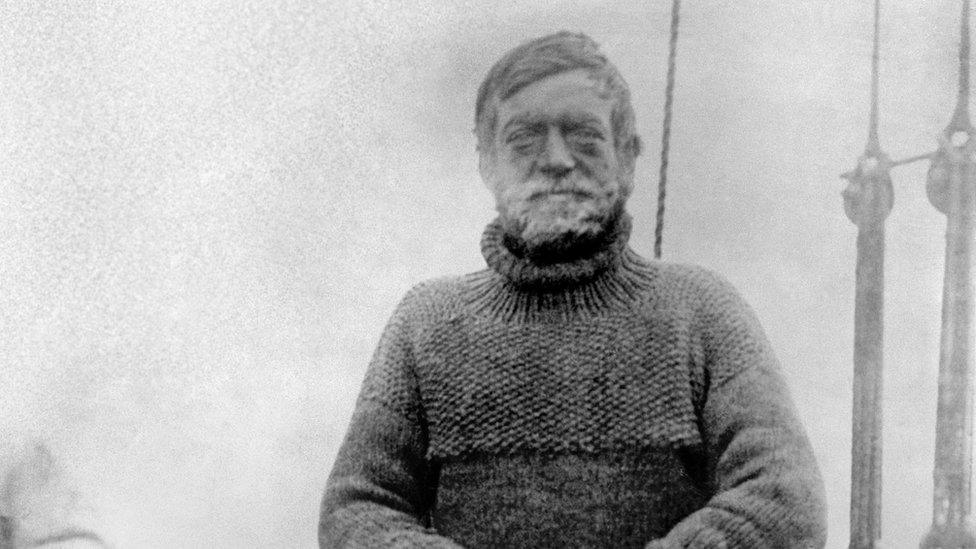
The photograph issued on the announcement of the death of Sir Ernest Shackleton in 1922
A plaque has been unveiled in Plymouth marking 100 years since polar explorer Sir Ernest Shackleton left the city on his final expedition to Antarctica.
The memorial was revealed by the granddaughter of the adventurer, alongside members of Antarctic Quest 21, who will be retracing Shackleton's footsteps to mark the centenary.
Shackleton left Plymouth in September 1921 intending to map still uncharted coastal regions of the White Continent.
But he died during the expedition.
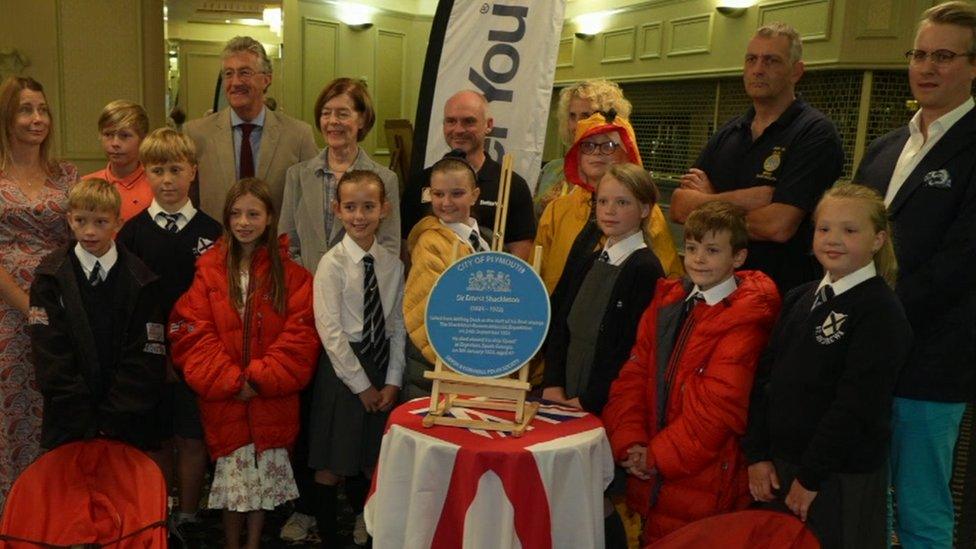
The new plaque was unveiled in Plymouth on Friday
Shackleton's final voyage on expedition vessel the Quest set out to be one of scientific discovery and experimentation to gauge environmental impact on the world's fifth largest continent.
But he died of a heart attack before reaching the polar south at the island of South Georgia.
Shackleton is most famous for his previous Imperial Trans-Antarctic Expedition, 1914-1917 in which he and his men escaped on foot and in lifeboats from the Endurance ship that was crushed by ice.
The Antarctic Quest 21 team, backed by Shackleton's granddaughter, Alexandra Shackleton, will be carrying out scientific experiments on the peninsular and also hold a commemoration service for Shackleton to mark the centenary of his death.
Ms Shackleton said her grandfather was a very modern leader in a lot of ways.
"I don't think he was a saint, I don't think he was perfect but I do think he was a very great man," she said.
Ms Shackleton said her grandfather's priorities were his men and his decision to turn back on the Imperial Trans-Antarctic Expedition was "regarded as one of the great decisions of polar history".
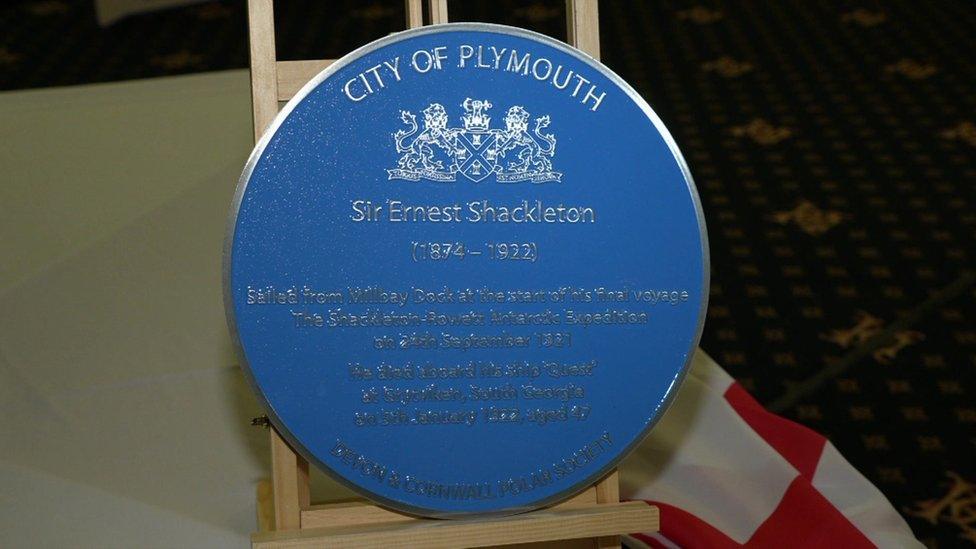
Shackleton's granddaughter said he was not perfect but he was a "very great man"
Jan Chojecki, the grandson of the Quest financial backer John Quiller Rowett was also at the unveiling at the Duke of Cornwall Hotel.
He said: "The Antarctic Quest 21 Expedition has scientific data-gathering front and centre of its ambitions.
"A century ago, my grandfather, John Quiller Rowett was insistent that science should be the priority for the Quest and as such it can be regarded as the first polar expedition of the modern age, rather than the last of the Heroic Age.
"I wish the team all the best in their quest."
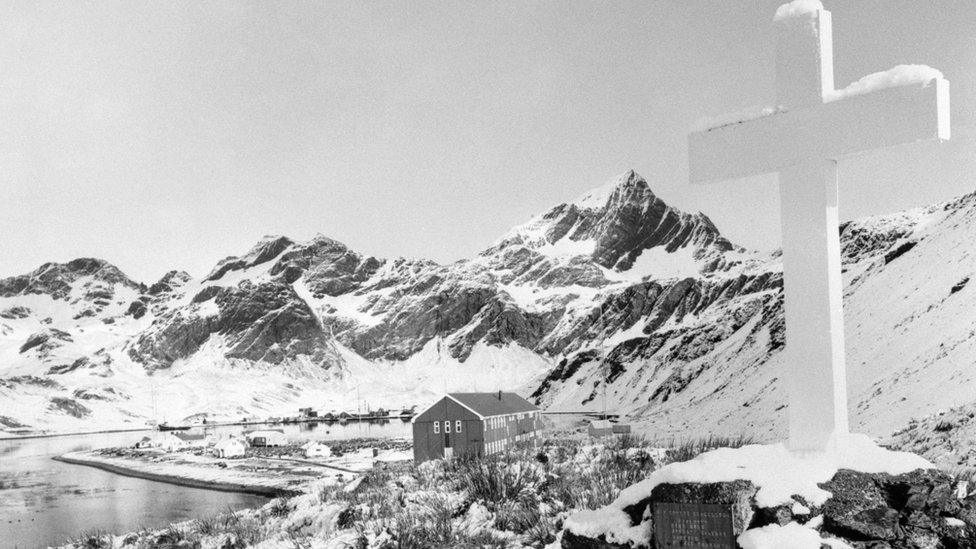
The memorial cross to Sir Ernest Shackleton at Hope Point, South Georgia, where he suffered a heart attack and died on board his ship the Quest while it was anchored at Grytviken in January 1922
The ceremony also marked the start of Antarctic Quest 21 Polar Outreach education campaign to invite all schools and young families in Plymouth and the south west to celebrate their polar maritime history
Antony Jinman, explorer in residence of The Box museum and art gallery in Plymouth, said: "This is a once-in-a-lifetime opportunity to get involved with an historic scientific expedition where polar science is as relevant today as it has ever been, especially being able to share our research and experiences with the future generations of the city."

Follow BBC News South West on Twitter, external, Facebook, external and Instagram, external. Send your story ideas to spotlight@bbc.co.uk, external.
Related topics
- Published17 September 2021
